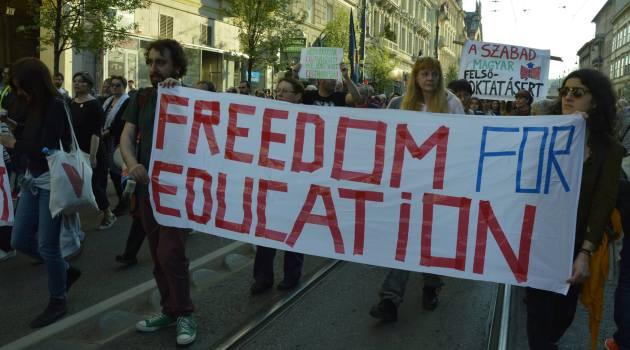Central European University earns its highest rankings yet internationally

Quacquarelli Symonds, a leading provider of global higher education rankings, usually sees American or British educational institutions in its top spots, with universities from the former eastern bloc not faring well in international comparisons. That does not, however, apply to Central European University in Budapest, Hungary (CEU), established in 1991 by the philanthropist George Soros.
CEU has been ranked relatively highly in past years, but this year it has achieved its highest global rating ever for its research and teaching. The institution is now among the top 50 universities worldwide with respect to two different subject areas: Politics, where it is ranked at number 30, and Philosophy, where it is ranked at number 37.
The rankings of CEU’s performance in other subject areas, including History, now place it among the 100 best universities in the world. Given the current policy of Hungarian Prime Minister Viktor Orbán, which has resulted in the Hungarian Government deciding to expel CEU from the country, CEU President and Rector Michael Ignatieff observed, “How ironic it is that the government seeks to drive us out when the rankings establish CEU’s position as the number 1 research university in Hungary.”
At the same time, CEU, thanks to its newly-acquired reputation, will be contributing to the renown of Vienna as a place for world-famous universities, as part of the CEU campus relocated to the Austrian capital this year. Rector Ignatieff added: “As we look towards launching our first ever undergraduate programs this fall in Vienna, we’re proud of our record as one of the world’s foremost research and learning institutions. Faculty and staff at CEU can take real pride in their accomplishments.”
In addition to its academic quality, CEU occupies an exceptional position thanks to its support for the higher education of Romani people. For that purpose, for 15 years CEU has been offering a year-long academic preparation program for Romani students from all over the world, including a scholarship, the aim of which is for Romani college graduates to then become candidates who can compete when applying to universities abroad where English is the language of instruction.
Romani students from the Czech Republic have only been minimally represented during the history of the program, which is a missed opportunity for Romani community members from that country. A video message about the Roma Graduate Preparation Program from a participant from the Czech Republic can be seen here in Czech.